Military widows grieving together share how they have come to cope with losing their husbands
On Memorial Day, we remember the families of service members who lost lives.
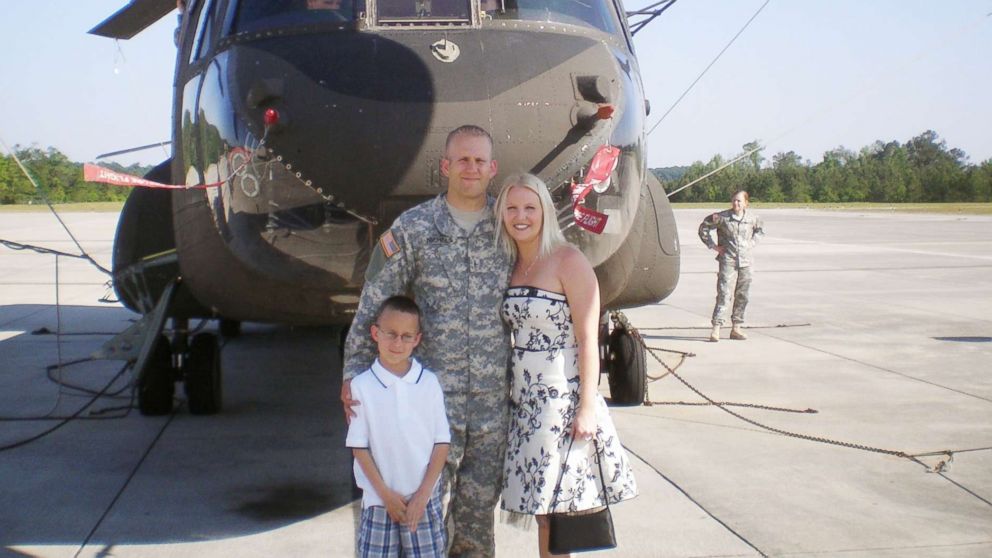
It was still early in the morning when Yasin Wade heard “that knock” at her door of her family’s Norfolk, Virginia, home. It was the sound she had long dreaded and hoped she would never have to hear, and it came even before she had started her day.
“The kids were up at 6 [a.m.] and they were like, ‘Mom, there’s some people at the door,’ and that was the knock,” Wade said.
When she opened it, the officers standing on her doorstep informed her that her husband, 38-year-old naval officer Lt. Daniel Wade, had collapsed and died of a heart attack while on deployment overseas.
“I was just kind of shocked I didn’t fully believe it,” she said. “When they came in I thought, ‘Oh, he’s hurt’ because this is the person who never gets hurt, it didn’t fully sink in until I saw him, which took quite a while.”
She learned that her husband, Daniel Wade, who was deployed in the Mediterranean Sea near Crete at the time, had just left port when he collapsed in his bathroom after working out.
“He collapsed and strangely enough his roommate and him barely ever saw each other but he happened to be in the room, so he called away -- they revived him a few times, but they just didn’t get him to the hospital. It took like three-and-a-half hours to get him back to shore,” she explained. “He had a massive heart attack -- it was the left ventricle, they call it the widowmaker.”
It fell to Yasin Wade to tell their three children, Daniel, Micah and Jaden, who were ages 8, 6 and 4 at the time, that their father was gone.
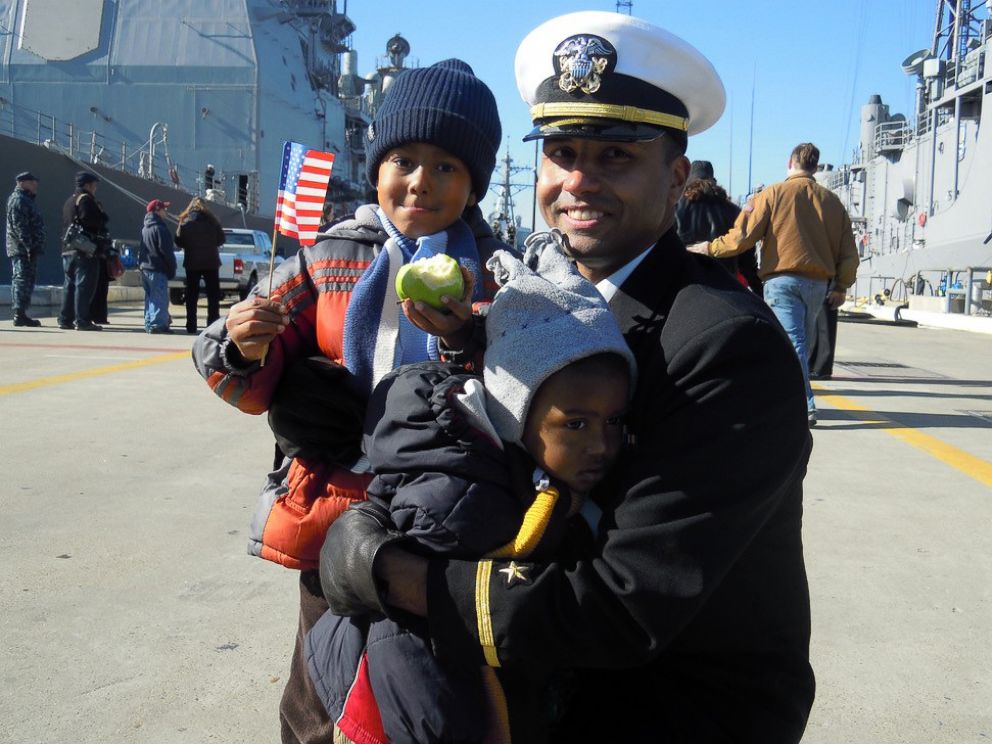
“I sat them down and [said], 'I’m kind of going to give you the worst news you’re going to get in your entire life: You’re dad died and he’s not going home,’” she recalled. “Daniel started crying immediately. Micah didn’t get what was going on and Jaden was really quiet. So I kind of just hugged them -- we just stayed home that day and I was in a spacey, out-of-body mode.”
Her husband’s death didn’t sink in, she said, until the moment she was inside the funeral home nearly two weeks later. “Just to see him, it sort of sunk in after I sat by myself at the funeral home. It kind of just resonated a bit more,” she said.
Military widow is not a title any service member’s wife thinks they will attain, but for Yasin Wade, it is a reality that eventually brought her closer to other widows going through the same unimaginable loss.
Wade was one of three women who sat down with ABC News’ Aaron Katersky at a retreat for surviving spouses of those who have died while serving in the armed forces. Listen to a portion of Aaron Katersky's "America Remembers" report on Monday's episode of the "Start Here" podcast.
Mary Nichols from Kansas City, Missouri, is another one of those women, who have grown close with Wade and other military wives through grieving.
Nichols lost her husband, 31-year-old Army Chief Warrant Officer Bryan Nichols, when his helicopter was shot down in Afghanistan.
Mary Nichols, who also served in the U.S. Army, first met Bryan working in medical logistics before she said he decided that he wanted to become a pilot.
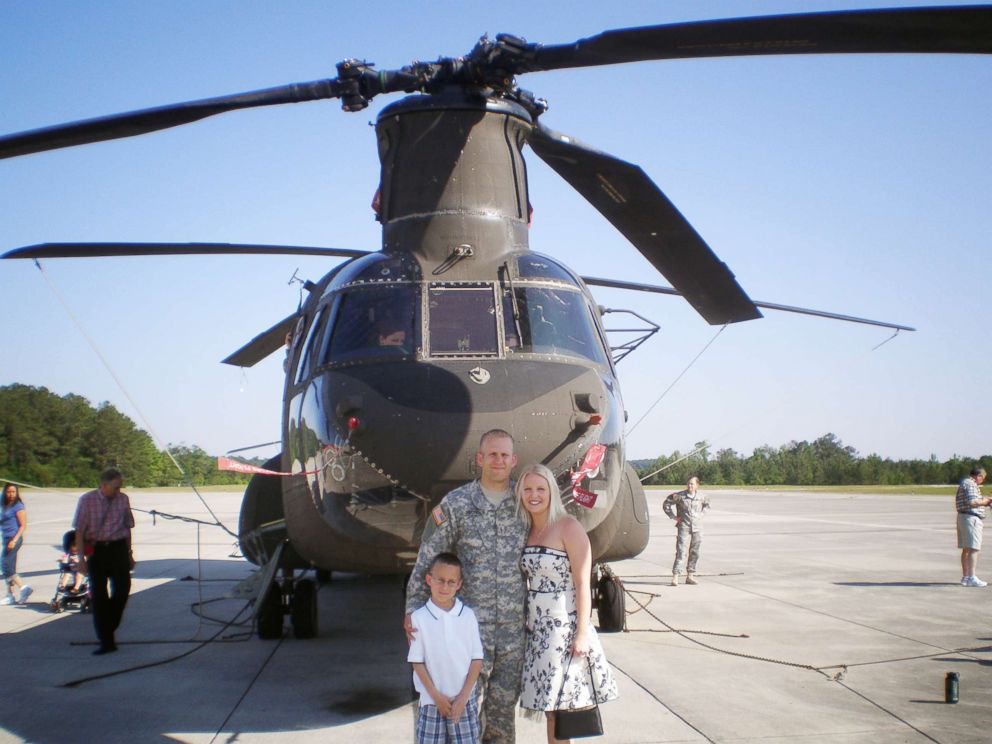
“I was already very on edge with this deployment because for some reason it just didn’t sit right with me,” Nichols said. “I just had a bad feeling about it I don’t know why and I kept telling myself that it was just because it was our first deployment together while we were married. I was uneasy about it and I started getting anxiety and chest pains stuff I had never gotten but I just figured it’s cause I love him so much.”
On Aug. 6, 2011, a Chinook helicopter carrying 25 Navy SEALs, an interpreter, one working dog and a five-member crew piloted by Bryan Nichols, was hit by a rocket-propelled grenade fired by the Taliban.
“I got a phone call from the phone tree from his unit. They were saying, 'One of our helicopters went down, it is our unit, we don’t know anything more than that at this point,'” Nichols recalled.
Later when she was out to dinner with her mom in Niagara Falls, Nichols said she received a tearful phone call from her brother-in-law confirming the news that her husband was dead.
“I thought I heard him sobbing and he realized I didn’t know and he realized he’s the one to tell me,” Mary Nichols said.
Army officials met her at the airport and took her home to explain what happened. “It killed them all immediately, [which] was a big comfort for me, cause I just don’t want him to suffer,” she said tearfully.
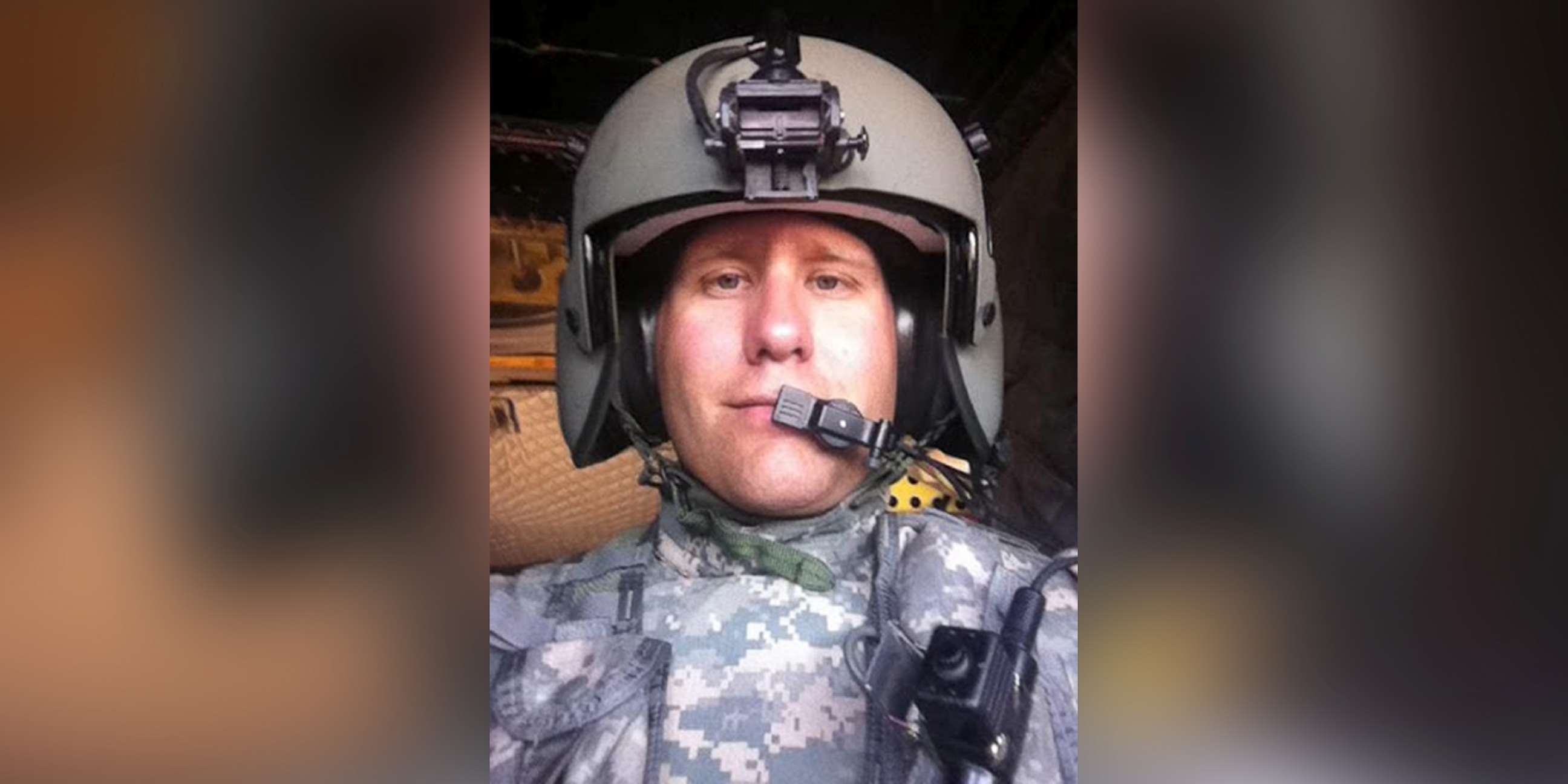
Mary Nichols said that she sometimes questions the way in which she received the news, but doesn’t know if getting the knock on her door like so many families of fallen soldiers would have made things any easier to comprehend.
And for others war has a way of claiming lives even after the battle on the ground ends.
Marine Cpl. Nathan Maxwell struggled with severe PTSD upon his return home from Iraq in June 2010. He was 24 years old when he committed suicide, leaving behind his young wife, Kylynn Maxwell.
"'Smiley' they called him in the Marine Corps," she said of her late husband. “He was a great Marine but he was also a lot more goofy and happy -- I definitely miss his smile.”
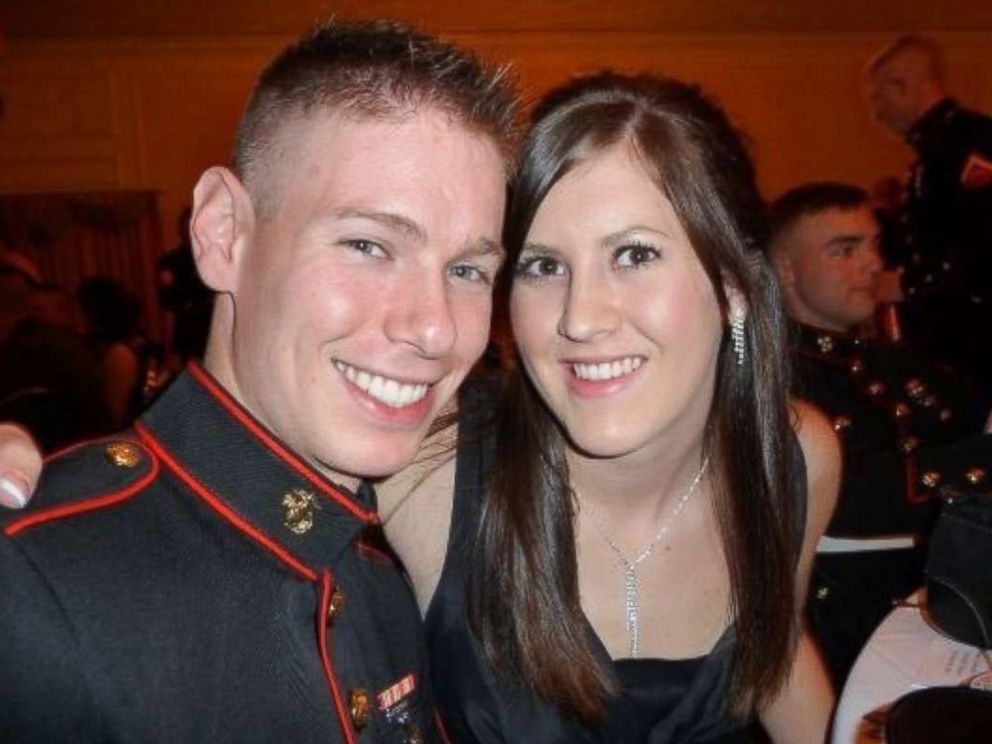
The pair from Missouri got married after he finished boot camp and just as she was starting college. Nathan Maxwell was a field wireman with the weapons unit, and Kylynn Maxwell said she noticed a change when he got back from his first deployment from Iraq.
“He came back from Iraq in one piece and he was healthy as can be and still smiling, but he brought back a lot of demons with him. Behind the smiles was a significant struggle the PTSD,” she said. “He was a very, very compassionate person, and I think a big part of what he struggled with was just knowing the terrible kinds of things that happened while he was there that he couldn’t do anything about.”
“There were a lot of ups and downs,” she continued, because she said Nathan Maxwell felt isolated, lonely and not supported by the men in his unit even once he was back stateside. Maxwell had attempted to take his own life a month before his death.
“I was able to intervene and stopped him,” Hill said. “At that point, he was very committed to getting better and we sought help together and he met a counselor and we would meet with her together and he would meet with her on his own and he was very determined to get better.”
Hill, who had recently graduated and living in the middle of rural Missouri, said it was a “very overwhelming” time and her husband was concerned with stigmas around mental health and the impact it might have on his career.
“I told him one day -- ‘it doesn’t matter what your career looks like if you die now,’” she said.
On June 15, 2010, Kylynn Maxwell said she gave her husband an ultimatum.
“I finally just told him, ‘I can’t keep doing this, so if you’re not going to actually work on this and get better then we can’t be together because I can’t wake up every day wondering if you’re going to die today,’” she said.
Later that day, local sheriff’s deputies arrived at her home to let her know they found her husband’s body and that he had taken his own life.
“They asked if I needed anything else and I said no and they just walked away and left me just standing in my driveway,” she said through tears. “It was a very confusing scary time because they just came and dropped the bombshell and left me there all by myself.”
Kylynn Maxwell said military officials initially told her they would not be paying for a funeral. The U.S. Department of Veterans Affairs offers various stipends toward burial and funeral expenses of service members.
“It took six months for them to recognize that his death was related in any way to his service,” she said.
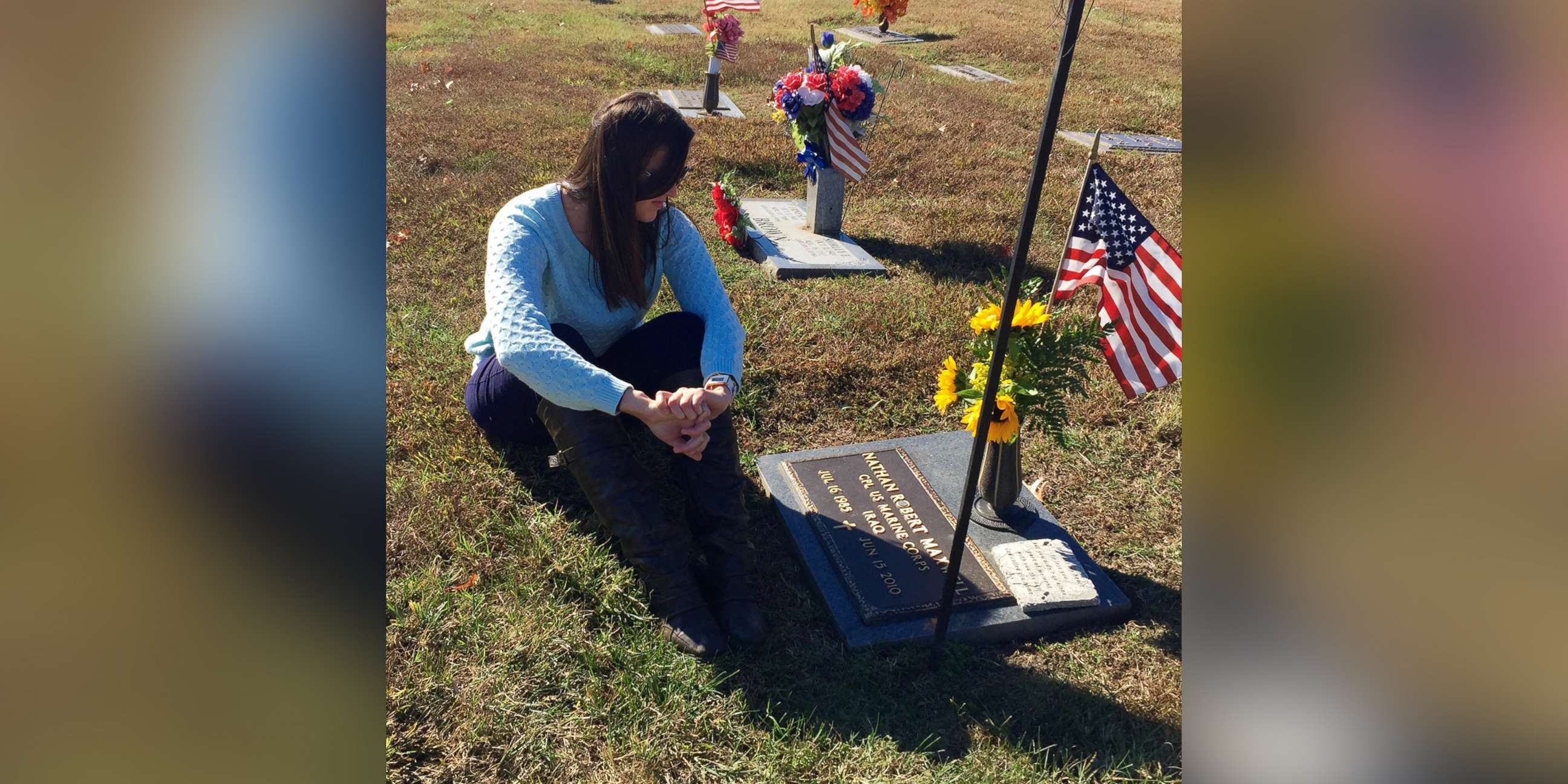
The military reimbursed the funeral expenses and reinstated survivor benefits, but Kylynn Maxwell still felt alone in her grief as a widow. “I struggled to find somebody that understood,” she said.
Eventually she found TAPS (Tragedy Assistance Program for Survivors), a nonprofit group that helps surviving family members grieving the loss of a military loved one. “That was when I truly felt supported,” she said.
For Yasin Wade finding that group of people through TAPS gave her a newfound sense of comfort.
“There’s something about being with a group of women that just know how you’re feeling without saying it. … It just felt like I found my people, like what I was missing and felt I was lacking,” Wade said.
Within TAPS, the women heard the stories of others dealing with loss and they said they began to understand varying levels of grief and how to cope while talking about things without judgment which helped the healing process.
Wade said she takes her three children to visit her husband’s gravesite at Arlington National Cemetery on Memorial Day and they play cards while sharing his favorite snack, Oreos.
Mary Nichols, who has been without her husband for nearly seven years, spends Memorial Day at the ballpark with the Kansas City Royals, who host gold star families at the game. But she said she enjoys attending TAPS events and has been going for many years for the support and the friends.
“I needed help and they gave it to me so I’m doing much better now,” she said.
Hill found her calling through TAPS and moved to Salt Lake City, where she now helps run the organization’s retreats for military widows like her.
“I can share my experience and allow people to see that because I’ve made it through a really difficult time they can do it too,” she said. “It is possible to do it with grace and come out the other side stronger.”




